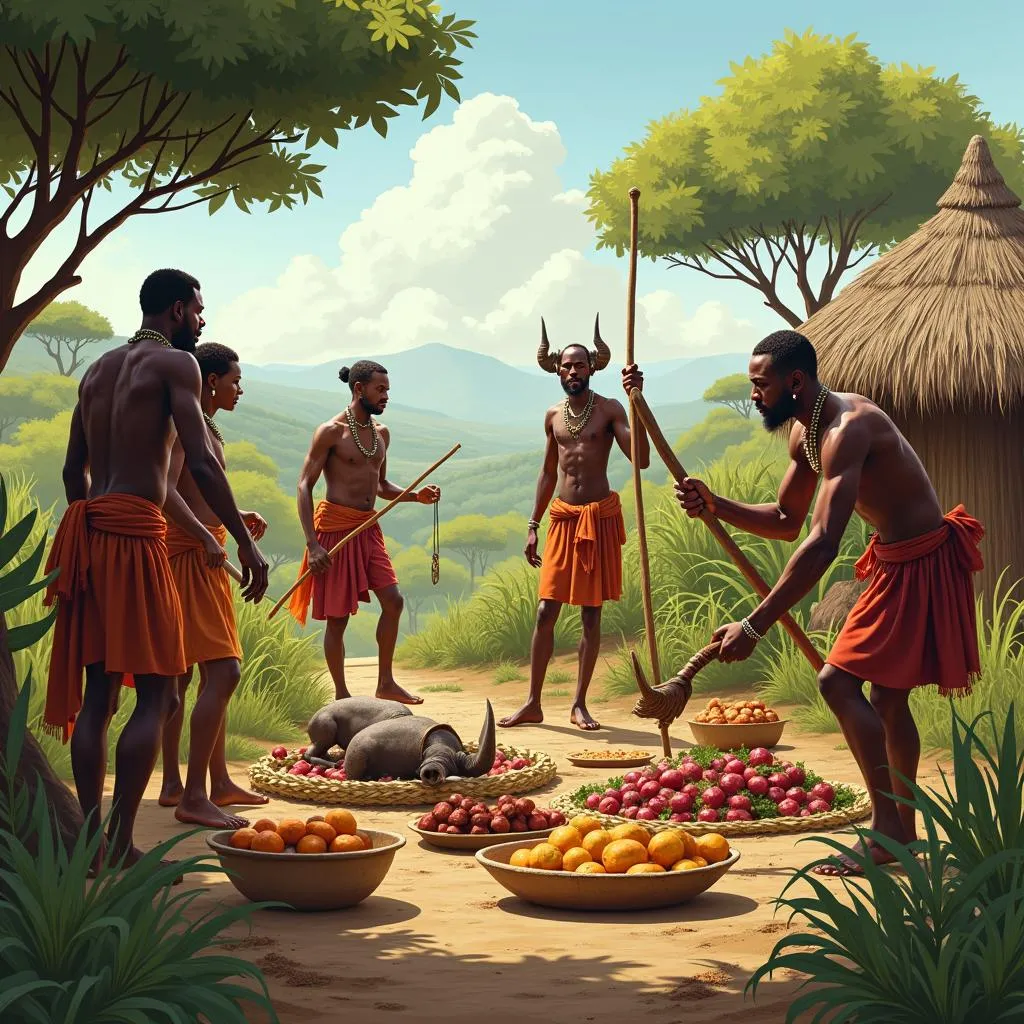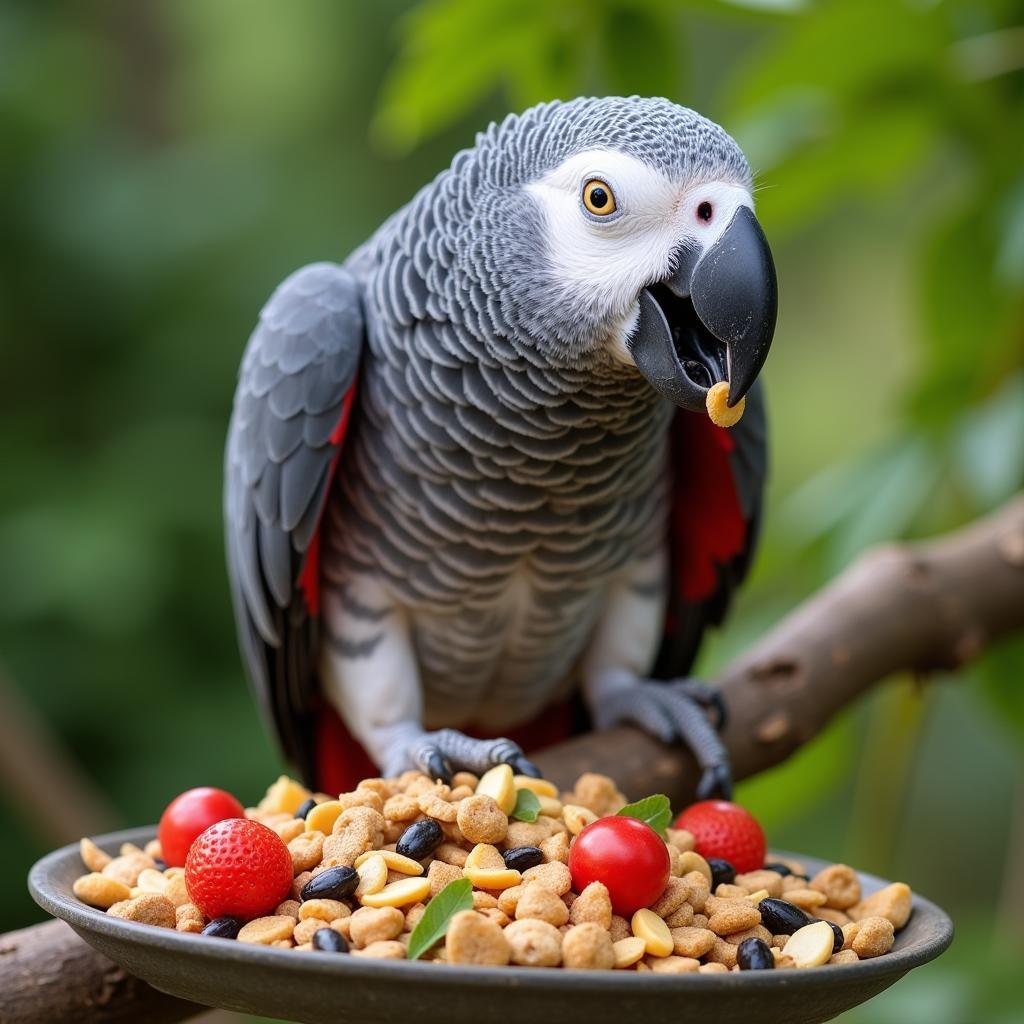The African Concept of Marriage: Beyond the Western Veil
The African Concept Of Marriage is a rich tapestry woven with diverse customs and traditions, often misunderstood through a Western lens. It’s not a monolithic institution but rather a multifaceted reflection of the continent’s vibrant cultures. This article delves into the core principles, variations, and evolving nature of marriage across Africa.
More Than Just Two Individuals: Community-Centric Unions
Across many African cultures, marriage isn’t simply a union between two individuals; it’s a bond between families and communities. This emphasis on communal involvement underscores the importance of social harmony and mutual support. Marriage is seen as a vital building block of society, strengthening inter-family ties and ensuring the continuity of lineage and traditions. Decisions regarding marriage often involve elders and extended family members, who play a crucial role in matchmaking and providing guidance. This communal approach fosters a sense of shared responsibility for the success of the marriage. The significance of family extends beyond the immediate kin, encompassing a wider network of relationships that provides a safety net and support system for the couple.
From bride price negotiations to elaborate wedding ceremonies involving entire villages, the communal aspect is central to the African concept of marriage. This practice underscores the shared investment and collective responsibility in the couple’s future. It’s a far cry from the Western emphasis on individual choice and romantic love, though these elements are certainly present in African marriages as well.
Bride Price: A Symbol of Appreciation, Not a Purchase
The practice of bride price, often misinterpreted as “buying a wife,” holds significant cultural meaning in many African societies. It’s a symbolic gesture of appreciation to the bride’s family for raising and nurturing her. The bride price, which can range from livestock to money or other valuables, signifies the value placed on women and their role in society. It also serves as a form of compensation for the loss of the bride’s contributions to her family. The amount and form of the bride price vary widely across different cultures and are often subject to negotiation between the two families.
Furthermore, the bride price can also act as a stabilizing force in the marriage, as its return is often required in the event of divorce. This encourages both families to invest in the success of the union.
Polygamy: A Fading Practice with Cultural Roots
While often associated with Africa, polygamy is not universally practiced and is declining in many regions. Historically, it served various social and economic functions, such as providing support for widows and orphans, increasing family labor, and enhancing social status. However, with changing social norms and economic realities, monogamy is becoming increasingly prevalent. It’s crucial to understand the historical context and evolving nature of this practice within specific African cultures.
What is the significance of marriage in African culture?
Marriage in African culture is deeply intertwined with community and family, representing more than just a union between two individuals.
How does the concept of bride price function in African marriages?
Bride price is a symbolic gesture of appreciation to the bride’s family, not a purchase, and represents the value placed on women and their contributions.
Is polygamy still widely practiced in Africa?
While historically significant, polygamy is declining in many African regions due to changing social norms and economic pressures.
Evolving Traditions in a Modern World
The African concept of marriage, like all cultural institutions, is constantly evolving. Modern influences, urbanization, and globalization are shaping marital practices across the continent. While some traditions remain strong, others are adapting to contemporary realities. The increasing emphasis on education and economic independence for women is also impacting marital dynamics. It’s important to recognize the dynamic nature of African marriage and avoid generalizations based on outdated stereotypes.
How are modern influences impacting African marriage traditions?
Modernization, urbanization, and globalization are reshaping marital practices, leading to adaptations while some traditions remain strong.
In conclusion, the African concept of marriage is a complex and fascinating subject that defies simple explanations. It is a testament to the resilience and adaptability of African cultures, preserving core values while embracing change. Understanding the nuances and diversity of these traditions is crucial to appreciating the rich tapestry of African Life. The African concept of marriage continues to evolve, blending tradition and modernity.
FAQ
- What is the role of elders in African marriages?
- How does the concept of family differ in African and Western cultures regarding marriage?
- What are some common misconceptions about African marriage?
- How does religion influence marriage practices in Africa?
- Are there variations in marriage customs within different African countries?
- How is divorce perceived in African cultures?
- What are some examples of traditional wedding ceremonies in Africa?
For further information or assistance regarding African cultural practices and legal matters related to marriage, please contact us:
Phone: +255768904061
Email: kaka.mag@gmail.com
Address: Mbarali DC Mawindi, Kangaga, Tanzania.
We have a 24/7 customer service team available to assist you.

